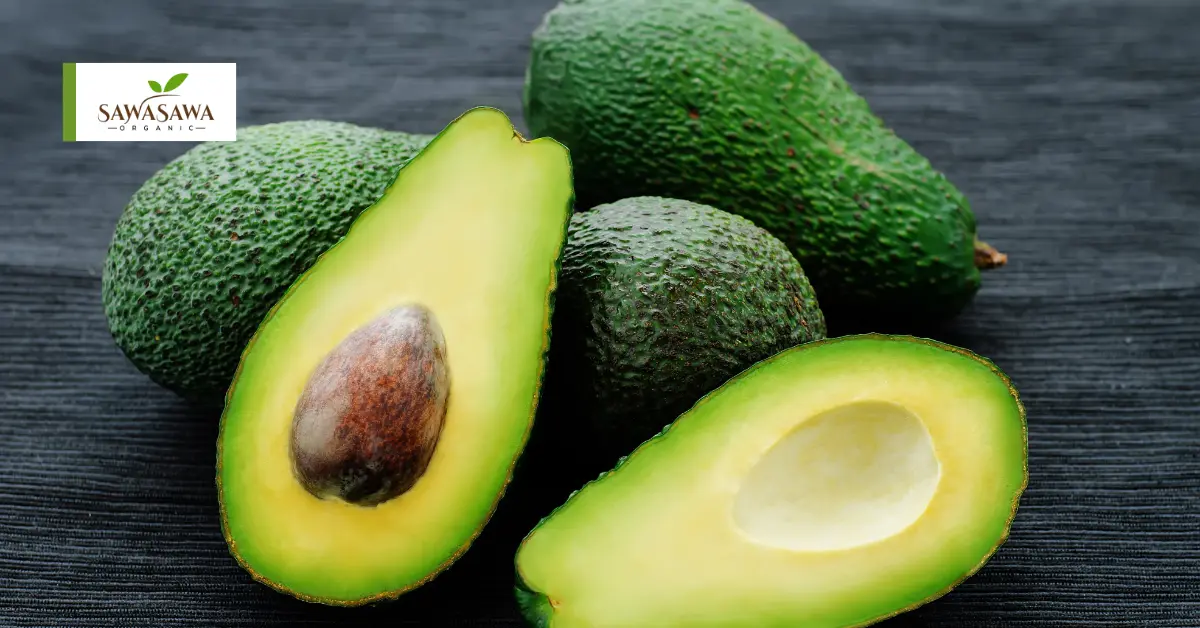
Discover how organic avocados promote heart health by lowering bad cholesterol, boosting good fats, and providing essential nutrients for long-term wellness.
Avocados are more than just a creamy addition to salads or toast—they are one of the most nutrient-dense foods linked to better heart health. Rich in monounsaturated fats, potassium, fiber, and antioxidants, avocados provide a combination of nutrients that support cardiovascular health in natural and powerful ways.
Eating organic avocados ensures that you enjoy these benefits without exposure to pesticides or harmful chemicals. As part of a balanced diet, they can help lower harmful cholesterol levels, regulate blood pressure, and promote satiety, making them a cornerstone of heart-friendly nutrition.
One medium-sized avocado contains:
Monounsaturated fats: Promote healthy cholesterol balance.
Potassium: More potassium than bananas, helping to regulate blood pressure.
Dietary fiber: About 10 grams, supporting digestion and satiety.
Vitamin E: An antioxidant that protects cells from oxidative stress.
Folate: Essential for cardiovascular and cellular function.
Magnesium: Supports muscle and nerve health.
B vitamins: Important for energy metabolism.
This nutrient combination makes avocados a unique fruit that bridges taste and health benefits.
Research has shown that avocados can reduce LDL cholesterol (often called “bad” cholesterol) while raising HDL cholesterol (the “good” cholesterol). This balance is critical for reducing the risk of heart disease and maintaining healthy arteries.
High potassium levels in avocados help counteract the effects of sodium in the diet, reducing high blood pressure—a major risk factor for heart attacks and strokes.
The antioxidants and healthy fats found in avocados reduce inflammation, which is closely linked to cardiovascular disease. Lower inflammation means less damage to blood vessels and a healthier circulatory system.
Avocados are rich in fiber and healthy fats, both of which promote satiety and reduce overeating. Maintaining a healthy weight directly benefits heart function by lowering the risk of hypertension, diabetes, and obesity-related heart conditions.
Vitamin E and other antioxidants in avocados protect the body’s cells—including heart tissue—from damage caused by free radicals. This contributes to long-term cardiovascular resilience.
Avocados are one of the most versatile foods you can add to your meals. Here are a few creative, heart-healthy ways to enjoy them:
Avocado on Whole Grain Toast
Spread ripe avocado on whole grain bread and top with tomato slices or seeds for a nutrient-packed breakfast.
Fresh Avocado Salad
Toss avocado cubes with leafy greens, olive oil, and lemon juice for a light and heart-friendly meal.
Avocado Smoothies
Blend avocado with spinach, banana, and almond milk for a creamy, filling, and energizing drink.
Homemade Guacamole
Mash avocado with lime juice, garlic, and cilantro for a delicious dip rich in heart-protective nutrients.
Avocado Topping for Proteins
Add sliced avocado to grilled chicken, fish, or bean dishes for an extra boost of healthy fats.
While avocados are generally considered a low-pesticide fruit, choosing organic avocados ensures maximum purity and sustainability. Organic farming practices protect the soil, reduce chemical use, and support biodiversity, making organic avocados not only better for your health but also better for the planet.
By choosing organic, you also support farming methods that prioritize long-term soil health and water conservation—two factors critical to sustaining global food systems.
Check ripeness by gently pressing the skin—ripe avocados should yield slightly.
Speed up ripening by placing avocados in a paper bag with a banana or apple.
Refrigerate ripe avocados to keep them fresh for several days.
Prevent browning by sprinkling cut avocados with lemon or lime juice and storing in an airtight container.
The rising popularity of avocados reflects a global shift toward whole foods, plant-based diets, and heart-friendly nutrition. Their versatility and rich nutrient content have made them a staple in wellness-focused meals worldwide.
From brunch menus to fitness plans, avocados are recognized not only for their flavor but also for their ability to fit seamlessly into modern dietary lifestyles. Their role in supporting heart health has made them particularly valuable in the fight against lifestyle-related conditions such as heart disease, high cholesterol, and hypertension.
Avocados are a natural ally for heart health, offering a unique blend of healthy fats, fiber, potassium, and antioxidants that work together to support cardiovascular wellness. Incorporating organic avocados into your diet can help lower harmful cholesterol, regulate blood pressure, reduce inflammation, and protect your heart in the long run.
Whether enjoyed on toast, blended into smoothies, or added to fresh salads, avocados are as versatile as they are beneficial. Choosing organic ensures you gain the full nutritional advantage while supporting sustainable farming practices.
By making avocados part of your regular meals, you are making a simple yet impactful choice for heart health and overall wellbeing.
For more healthy living insights and recipes, visit: SawaSawa Organic Healthy Living